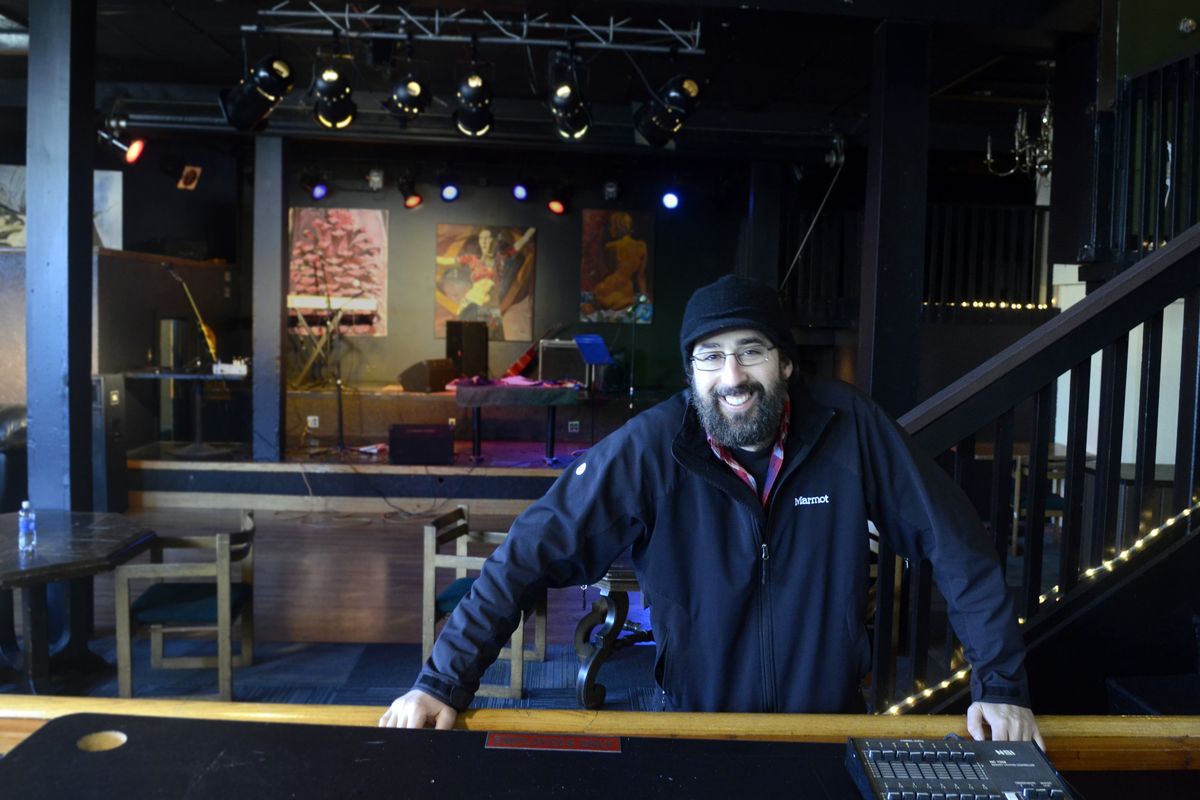Community and history are two roots of the Big Dipper’s success

The Big Dipper is one of the most historic live music venues in Spokane: a small, locally owned-and-operated, all-ages spot with a reputation for sticking to its roots.
About seven years ago, the Dipper came under the ownership of Dawson and Dan Hoerner, who – previously unexperienced with running a live music venue – have guided its growth and revival since.
Live music has “just been part of our lives, forever,” Dawson Hoerner said. Her husband, Dan, is part of Seattle indie group Sunny Day Real Estate, and the two spent years in and out of live shows either onstage or in the pit.
But going into the Dipper, “we had never run a venue before. That’s just the other side of the coin, so we had a lot to learn,” Dawson Hoerner said.
“People are so positive and excited in Spokane for live music venues.” The two were spurred on by that reaction but understood the risk of the industry they were in.
Independent music venues are “hard to make work, so they come and go,” Hoerner continued. “During out tenure at the Dipper, we’ve seen probably seven or eight comings and goings of venues.”
But what separated the Dipper from the pack was its history and community roots. “A lot of people come up and say ‘I met my wife at the Big Dipper’ or ‘I played my first show at the Big Dipper.’ Dan played one of his first shows at the Big Dipper when he was too young to drink.”
With an inside understanding of why the Big Dipper was so important, the Hoerners were able to bring the best out of the venue and use their position to support the music community, which supported them in turn.
It comes down to the people, and the Hoerners’ approach seeks to alienate no one. “We try and be totally inclusive. So, we will have jazz, and we will have heavy metal, and we’ll have reggae and punk and indie and blues, EDM,” Dawson Hoerner said.
“We just really try and be open for everyone. We want all those people to feel like it’s a place where they’re comfortable and it’s a place where their kind of music is supported.”
Curating a schedule with such diverse sound has its drawbacks. It means that a die-hard folk fan can’t rely on the Dipper for their favorite music, but two upshots are inclusiveness and a wider audience base.
Needless to say, COVID-19 hasn’t been an easy time to own a music venue, and the Big Dipper has been shuttered for more than a year.
But in spite of the adversity of the pandemic, Hoerner is immensely grateful to the community and local government for supporting the Big Dipper, financially and otherwise.
“I think the city’s been really cognizant of the importance of live music and live music venues in trying to create or maintain a culture,” she said. And now they can see the light at the end of the tunnel. Nothing is certain, but she’s “starting to see show requests coming into my email.”
“The local musicians are just chomping at the bit, and a few of them have really generously said, ‘We’ll play our first show for free and just help you guys raise some money.’ And that’s a very heartwarming thing.”
“People are excited to get going again, but we fully plan on being safe about it,” Hoerner said. “We have to figure out how to be safe about it once we do reopen, and so we’re starting to figure that stuff out.”
Getting the Spokane crowds back in-house will be a huge relief to the Hoerners and the bands that they host. Not to mention the audiences, for whom Dawson Hoerner has no small amount of praise.
Being from the East Coast and having lived in Seattle, she understands crowd culture and characterizes Spokane’s as one of gratitude. “Spokane, I think, has a phenomenal response. I think people here are so grateful.”
“There just isn’t as much live music. A lot of clubs close, and audiences have seen that happen. So, I think people don’t know how long the venue is going to be around. You know, I think people are really appreciative, for that reason, of the venue and of the bands.”
She has no shortage of stories of the Big Dipper’s audience getting rave reviews from visiting performers, which is an honor not all cities have earned. “I think that it is so lucky for us that we have that kind of audience.”
But it isn’t just luck; the pandemic has shown more than ever how the music community refuses to quit giving support even when everything seems at a standstill. Every aspect, from the audiences to the venues, is the result of a history of community that the Big Dipper exemplifies.
While you can’t go to a show just yet at the Big Dipper, be on the lookout for show announcements in the coming months pending further reopening, Hoerner said. Until then, satisfy your need for music by visiting the Big Dipper on Facebook and YouTube.
Julien A. Luebbers can be reached at julienluebbers@gmail.com.